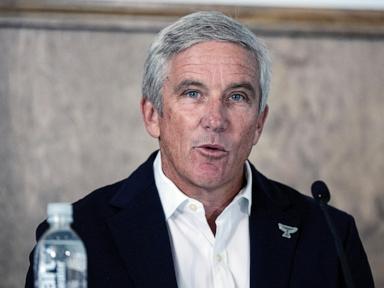Trump, the self-proclaimed peacemaker, should channel and exceed his inner Reagan

The early analyses of Trump’s victory have focused almost exclusively on the perceived abandonment of the working class by increasingly corporatist Democrats and the Trump-Vance ticket’s successful embrace of the plight of those who have been left behind by the global economy and the rising inequalities in our society. The culture wars have also been thrown into the mix. While these issues have certainly played a significant role in the decisive loss, Trump was able to claim another attribute traditionally reserved for the Democratic Party, that of being anti-war. We have no doubt that this association contributed to the election results.
The neoconservative strategies of the U.S. leadership over the past couple of decades, which the Biden administration pursued enthusiastically, have brought the world to the brink, with Ukraine in ruins, the Middle East in worse shape than it has been in decades, the Indo-Pacific ready to explode, and the risk of nuclear war arguably higher than it’s been at any point since the Cuban Missile Crisis. Moreover, Vice President Kamala Harris did nothing to counter this misguided policy of war, war and more war. Extolling America’s unprecedented military “lethality” and parading with former Rep. Liz Cheney (R-Wyo.) only solidified this perception.
There is no doubt that a sizeable portion of America is disturbed by the devastation in Gaza, the spillover of that war outside of Israel and Palestine, and the prolonged Ukraine conflict that they have been assured time and again was going to lead to a defeat of Russia. There has been a failure to even engage in meaningful diplomacy, let alone stop the wars, which anyone paying even minimal attention can see quite clearly.
The question is, can Trump deliver on his pledges to engage in diplomacy and quickly end both wars?
And while he is out there saving Ukrainian, Russian, Palestinian, Lebanese, Israeli and other lives, can he also channel his inner President Ronald Reagan and pursue nuclear disarmament to save not just the people of the U.S. but all of humanity?
President-elect Trump frequently talks about how much he loves America. If he does, how can he leave us vulnerable to not just Russia and China’s nuclear arsenals, but also to North Korea’s? North Korea ranks as 56th country in the world by population size and is regularly listed in the bottom tenth of countries in per capita GDP. It is not just that nuclear weapons and North Korea’s intercontinental missiles can threaten the U.S. It is that they can destroy our country as we know it.
For all of the decades of rhetoric around nuclear deterrence, thousands upon thousands of pages of written analyses, and trillions of dollars spent to develop, maintain and now also to modernize our nuclear weapons arsenal, there has never been a satisfactory answer by proponents of nuclear arms to a simple question of what will happen if nuclear deterrence fails. They don’t want to have that conversation because the answer is so devastating as to be unthinkable. But President Kennedy and Nikita Khrushchev weighed that possibility during the Cuban Missile Crisis.
And Kennedy said of his hawkish military advisers who urged bombing of the missile sites and an invasion of Cuba that if he did what they wanted, “none of us will be alive later to tell them that they were wrong.”
In 1986, President Reagan and Soviet leader Mikhail Gorbachev almost agreed to eliminate U.S. and Soviet nuclear weapons, which had reached their historical maximum at 70,000 warheads combined, with a destructive capability exceeding 2.5 million Hiroshima bombs. The sticking point that led them to abandon the agreement was Reagan’s insistence on testing the U.S. military’s Star Wars project, to develop a missile defense system that would supposedly protect the U.S. from incoming intercontinental ballistic missile attacks.
Decades and billions of dollars later, we have 44 such interceptor missiles, with a 50 percent success rate (when alerted ahead of time to an incoming missile). That would not save us from the thousands of warheads in Russia’s arsenal alone — especially if they are augmented by thousands of decoys designed to further confuse the overwhelmed U.S. interceptors.
Trump could once and for all give up not just on Star Wars but on nuclear weapons altogether. He can do what Gorbachev offered and most of Reagan’s advisors urged him to accept.
We have already proposed that President Biden invite the winners of this year’s Nobel Peace Prize — the Japanese organization of Atomic Bomb Survivors, Nihon Hidankyo — to the White House. If Biden doesn’t do it, Trump should after assuming office.
This is a once-in-a-lifetime opportunity for a president to engage with Nobel Laureates whose suffering was caused by our country’s actions that seven of America’s eight five-star officers in 1945 either said was militarily unnecessary, morally reprehensible, or both. And by learning more about their horrifying experience of living through the bombing and the subsequent 79 years, marked by illness and trauma, Trump could decide to turn the tide on the insanity that has been our nuclear weapons policy since those fateful days when the U.S. bombed Hiroshima and Nagasaki.
Kennedy and Khrushchev both stared the possibility, even, they feared, the probability of nuclear war squarely in the face and recoiled from what they saw. Khrushchev spoke for both of them when he told visiting U.S. journalist and peace activist Norman Cousins, “Peace is the most important goal in the world. If we don’t have peace and the nuclear bombs start to fall, what difference will it make whether we are Communists or Catholic or capitalists or Chinese or Russians or Americans? Who could tell us apart? Who will be left to tell us apart?”
Pursuing nuclear disarmament earnestly would be an astounding and universally acclaimed development for the Trump presidency, for the United States and for the world. The effort would not just ensure the survival of humanity for the foreseeable future but also open up much-needed funding for exactly the kind of economic and social programs that would help many of the people who voted for the Trump-Vance ticket in the first place.
Ivana Nikolić Hughes, Ph.D. is president of Nuclear Age Peace Foundation.
Topics
-

Newscast: Trump the Peacemaker?
Top stories - BBC News - 2 days ago -

How Gamefam’s Founder Taps His ‘Inner Child’ to Bring Brands to the Metaverse
Business - Inc. - October 25 -

Cole says Republicans should 'be working with' Trump 'to try and achieve his objectives'
Politics - The Hill - Yesterday -

Brit Hume on Trump comeback: 'The Reagan Republican Party is gone'
Politics - The Hill - November 4 -
Numbers Do Lie: Baker Mayfield leads the league in TD passes ... for now
Sports - Yahoo Sports - October 31 -
Many parents voted for Trump. His top priority should be expanding the child tax credit, advocates say.
Business - MarketWatch - November 7 -

Trump thinks he can fix golf's mess. He starts by playing golf with PGA Tour commissioner
Sports - ABC News - 3 hours ago
More from The Hill
-

Nikki Haley says 'Morning Joe' hosts met Trump for ratings
Politics - The Hill - 53 minutes ago -

Musk, Epshteyn clash over Trump picks: Report
Politics - The Hill - 53 minutes ago -

Can Kemi Badenoch lead the UK’s Conservatives out of the wilderness?
Politics - The Hill - 58 minutes ago -

5 things to know about Trump’s FCC pick
Politics - The Hill - 1 hour ago -

Bolton: Moscow, Beijing should feel ‘a lot of relief’ if Gabbard is confirmed as DNI
Politics - The Hill - 1 hour ago